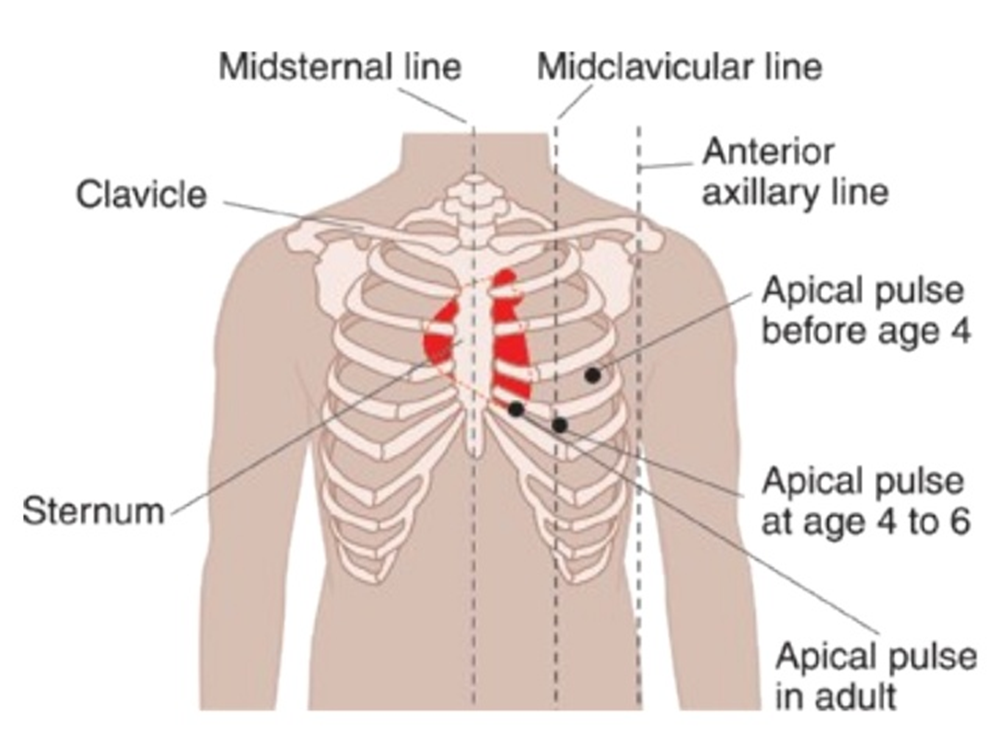RN HESI Pharmacology Exam
RN HESI Pharmacology Exam ( 31 Questions)
Which assessment finding requires nursing intervention prior to the administration of a prescribed dose of digoxin to an adult?
Apical pulse rate of 50 beats/minute requires nursing intervention prior to the administration of digoxin, which is a medication that slows down and strengthens the heartbeat. Digoxin can cause bradycardia, which is a slow heart rate below 60 beats/minute. Bradycardia can lead to inadequate blood flow and oxygen delivery to the body. The nurse should withhold the dose of digoxin and notify the prescriber if the apical pulse rate is below 60 beats/minute.

Irregular apical pulse rhythm does not require nursing intervention prior to the administration of digoxin, which is a medication that treats arrhythmias, which are irregular heart rhythms. Digoxin can correct or prevent some types of arrhythmias, such as atrial fibrillation or flutter. The nurse should monitor the apical pulse rhythm and report any changes to the prescriber, but it is not a reason to withhold the dose of digoxin.
Presence of a systolic heart murmur does not require nursing intervention prior to the administration of digoxin, which is a medication that improves the pumping function of the heart. A systolic heart murmur is a sound that occurs when the heart contracts and blood flows through a narrow or leaky valve. Digoxin can reduce the symptoms of heart failure, such as shortness of breath, fatigue, and edema, which may be associated with a systolic heart murmur. The nurse should document the presence and characteristics of the heart murmur, but it is not a reason to withhold the dose of digoxin.
Apical pulse heard best at the pulmonic site does not require nursing intervention prior to the administration of digoxin, which is a medication that affects the electrical activity and contractility of the heart. The apical pulse is the heartbeat heard at the apex of the heart, which is located at the fifth intercostal space on the left midclavicular line. The pulmonic site is located at the second intercostal space on the left sternal border, where the sound of blood flow through the pulmonary valve can be heard. The nurse should listen to the apical pulse at the correct location, but it is not a reason to withhold the dose of digoxin.
Choice A reason: Apical pulse rate of 50 beats/minute requires nursing intervention prior to the administration of digoxin, which is a medication that slows down and strengthens the heartbeat. Digoxin can cause bradycardia, which is a slow heart rate below 60 beats/minute. Bradycardia can lead to inadequate blood flow and oxygen delivery to the body. The nurse should withhold the dose of digoxin and notify the prescriber if the apical pulse rate is below 60 beats/minute.
Choice B reason: Irregular apical pulse rhythm does not require nursing intervention prior to the administration of digoxin, which is a medication that treats arrhythmias, which are irregular heart rhythms. Digoxin can correct or prevent some types of arrhythmias, such as atrial fibrillation or flutter. The nurse should monitor the apical pulse rhythm and report any changes to the prescriber, but it is not a reason to withhold the dose of digoxin.
Choice C reason: Presence of a systolic heart murmur does not require nursing intervention prior to the administration of digoxin, which is a medication that improves the pumping function of the heart. A systolic heart murmur is a sound that occurs when the heart contracts and blood flows through a narrow or leaky valve. Digoxin can reduce the symptoms of heart failure, such as shortness of breath, fatigue, and edema, which may be associated with a systolic heart murmur. The nurse should document the presence and characteristics of the heart murmur, but it is not a reason to withhold the dose of digoxin.
Choice D reason: Apical pulse heard best at the pulmonic site does not require nursing intervention prior to the administration of digoxin, which is a medication that affects the electrical activity and contractility of the heart. The apical pulse is the heartbeat heard at the apex of the heart, which is located at the fifth intercostal space on the left midclavicular line. The pulmonic site is located at the second intercostal space on the left sternal border, where the sound of blood flow through the pulmonary valve can be heard. The nurse should listen to the apical pulse at the correct location, but it is not a reason to withhold the dose of digoxin.
